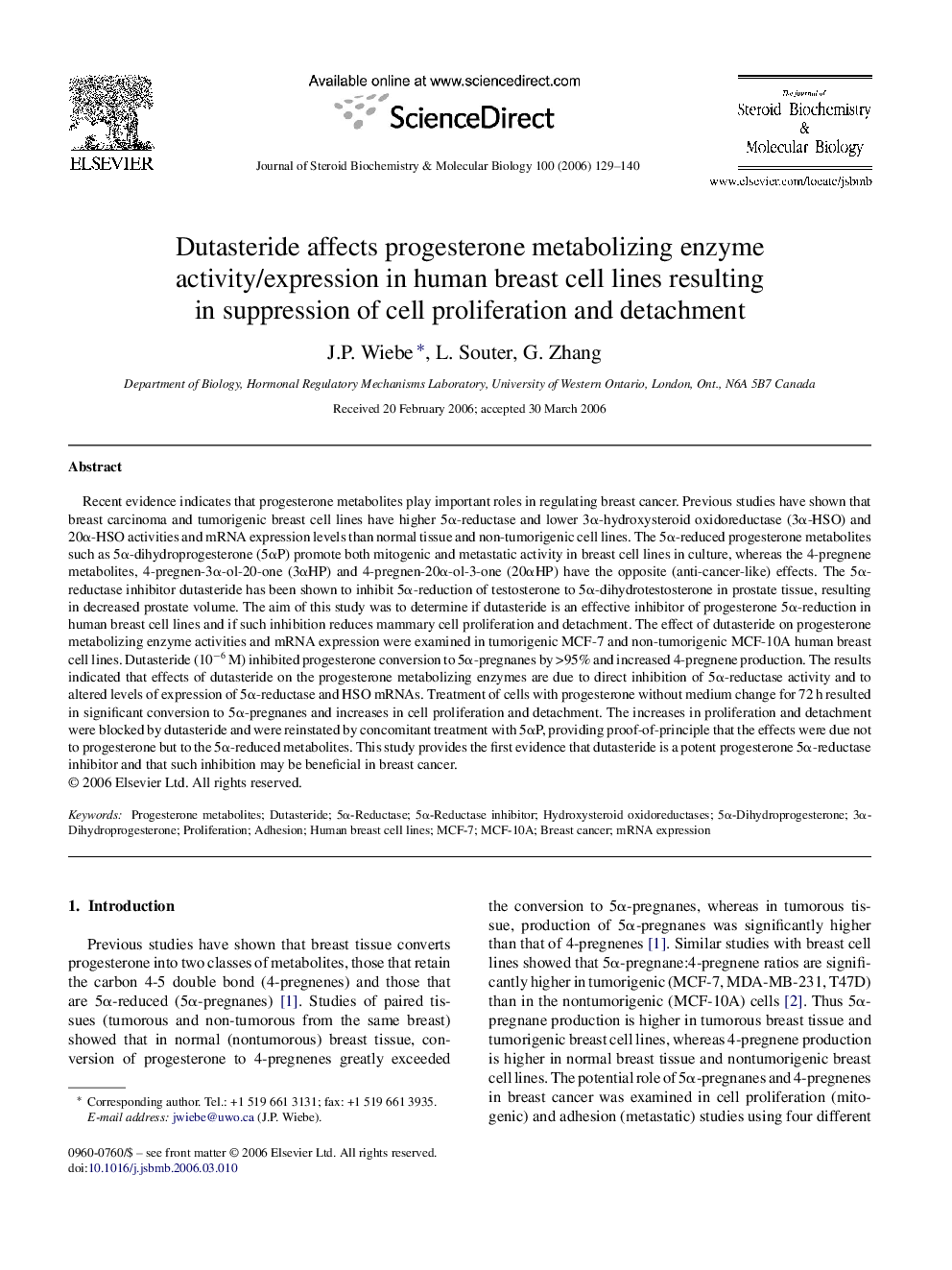| Article ID | Journal | Published Year | Pages | File Type |
|---|---|---|---|---|
| 1992693 | The Journal of Steroid Biochemistry and Molecular Biology | 2006 | 12 Pages |
Abstract
Recent evidence indicates that progesterone metabolites play important roles in regulating breast cancer. Previous studies have shown that breast carcinoma and tumorigenic breast cell lines have higher 5α-reductase and lower 3α-hydroxysteroid oxidoreductase (3α-HSO) and 20α-HSO activities and mRNA expression levels than normal tissue and non-tumorigenic cell lines. The 5α-reduced progesterone metabolites such as 5α-dihydroprogesterone (5αP) promote both mitogenic and metastatic activity in breast cell lines in culture, whereas the 4-pregnene metabolites, 4-pregnen-3α-ol-20-one (3αHP) and 4-pregnen-20α-ol-3-one (20αHP) have the opposite (anti-cancer-like) effects. The 5α-reductase inhibitor dutasteride has been shown to inhibit 5α-reduction of testosterone to 5α-dihydrotestosterone in prostate tissue, resulting in decreased prostate volume. The aim of this study was to determine if dutasteride is an effective inhibitor of progesterone 5α-reduction in human breast cell lines and if such inhibition reduces mammary cell proliferation and detachment. The effect of dutasteride on progesterone metabolizing enzyme activities and mRNA expression were examined in tumorigenic MCF-7 and non-tumorigenic MCF-10A human breast cell lines. Dutasteride (10â6 M) inhibited progesterone conversion to 5α-pregnanes by >95% and increased 4-pregnene production. The results indicated that effects of dutasteride on the progesterone metabolizing enzymes are due to direct inhibition of 5α-reductase activity and to altered levels of expression of 5α-reductase and HSO mRNAs. Treatment of cells with progesterone without medium change for 72 h resulted in significant conversion to 5α-pregnanes and increases in cell proliferation and detachment. The increases in proliferation and detachment were blocked by dutasteride and were reinstated by concomitant treatment with 5αP, providing proof-of-principle that the effects were due not to progesterone but to the 5α-reduced metabolites. This study provides the first evidence that dutasteride is a potent progesterone 5α-reductase inhibitor and that such inhibition may be beneficial in breast cancer.
Keywords
Related Topics
Life Sciences
Biochemistry, Genetics and Molecular Biology
Biochemistry
Authors
J.P. Wiebe, L. Souter, G. Zhang,
